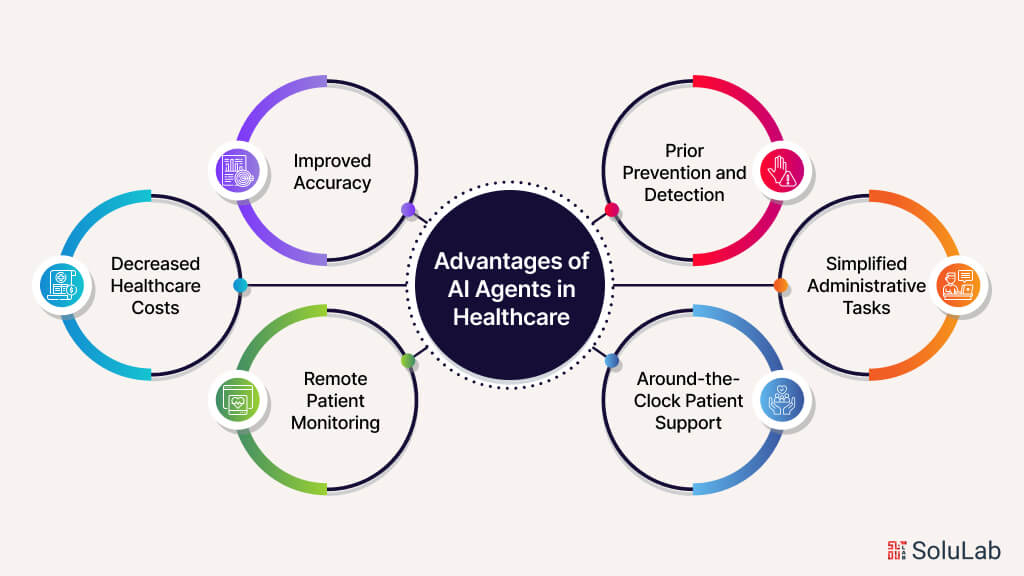What You Should Expect From a Florida Medicare Agent During Your First Consultation
What You Should Expect From a Florida Medicare Agent During Your First Consultation
Blog Article
How Insurance Functions for Senior Citizens: Key Insights Into Medicare and Coverage Options
Comprehending insurance for senior citizens, specifically Medicare, is essential for reliable healthcare administration. Medicare offers crucial insurance coverage, however its complexities can be frustrating. Senior citizens must browse different elements, such as Parts A, B, and D, in addition to choices like Medicare Advantage and Medigap plans. Each choice influences their financial duties and accessibility to solutions. Unloading these components exposes substantial understandings that can influence their health care decisions. What are the key aspects seniors should take into consideration?
Understanding Medicare: A Review

Medicare Parts A and B: What They Cover
Medicare Parts A and B provide vital insurance coverage for senior citizens, resolving both hospital and clinical services. Part A concentrates on medical facility insurance coverage, covering inpatient keeps and specific outpatient services. Component B provides insurance coverage for a range of clinical solutions, including doctor gos to and preventive treatment.
Hospital Insurance Policy Insurance Coverage
How do senior citizens browse the complexities of healthcare facility insurance policy coverage? Medicare Part An offers crucial medical facility insurance policy, covering inpatient remains, proficient nursing facility care, hospice solutions, and some home health and wellness treatment. This protection is important for senior citizens, as it helps manage the costs connected with hospital stays and recovery.Medicare Component B, on the various other hand, enhances Part A by covering outpatient services, consisting of doctor visits, precautionary treatment, and analysis tests. With each other, these 2 components create a complete safeguard for senior citizens, ensuring they have access to needed treatment. Recognizing the differences between Parts A and B permits senior citizens to make educated decisions about their health care requirements and economic responsibilities related to health center services.
Medical Solutions Protection
While going across the complexities of medical solutions coverage, seniors gain from understanding the particular offerings of Medicare Components A and B. Medicare Component A mainly covers inpatient hospital remains, experienced nursing center treatment, hospice care, and some home health and wellness treatment services. In contrast, Medicare Component B concentrates on outpatient solutions, including doctor visits, preventive treatment, diagnostic tests, and sturdy clinical tools. In Addition, Component B covers specific psychological wellness services and outpatient recovery. Together, these parts supply an extensive structure for managing medical care requirements. Elders need to familiarize themselves with the nuances of these protection alternatives to guarantee they optimize their advantages and reduce out-of-pocket costs, eventually enhancing their access to necessary clinical solutions.
Medicare Advantage Plans: An Alternate Strategy
An expanding number of senior citizens are checking out Medicare Benefit Plans as a sensible choice to traditional Medicare. These strategies, also referred to as Medicare Part C, are used by private insurer and encompass all advantages of Medicare Parts A and B, often including added solutions such as vision, oral, and health programs. Several seniors value the structured approach, as these plans commonly provide a single plan that covers various medical care needs.Medicare Benefit Plans can offer an economical choice, with some plans even including reduced or no monthly premiums. It is crucial for senior citizens to assess the network of hospitals and doctors associated with each plan, as well as any type of extra out-of-pocket expenditures that might emerge. Inevitably, selecting a Medicare Advantage Strategy needs careful consideration of private wellness needs and economic situations, ensuring seniors select the option that finest suits their lifestyle and medical care needs.
Prescription Medicine Protection: Medicare Part D
Medicare Component D offers essential prescription medicine insurance coverage for senior citizens, helping to manage the costs of needed drugs. Recognizing the enrollment period is crucial for beneficiaries to optimize their benefits and stay clear of fines. Furthermore, price considerations play a significant role in picking the ideal strategy to fit specific health and wellness requirements and economic situations.
Coverage Fundamentals Explained
Prescription medicine coverage is a crucial component of medical care for seniors, making sure accessibility to necessary medicines. Medicare Part D offers a selection of plans designed to aid cover prescription medication expenses. These plans are provided by exclusive insurance coverage firms accepted by Medicare and can vary extensively relative to premiums, deductibles, and covered drugs. Recipients commonly pay a month-to-month costs, together with copayments or coinsurance for every prescription. It is necessary for elders to review their alternatives annually, as costs and formularies might change. Some individuals may additionally receive Additional Help, a program that helps with out-of-pocket expenses. Eventually, understanding these fundamentals allows senior citizens to make educated choices concerning their prescription drug coverage.
Registration Period Information
Comprehending the numerous registration periods for Medicare Component D is essential for senior citizens looking for to secure their prescription medicine insurance coverage. The First Registration Period (IEP) lasts seven months, beginning 3 months prior to a specific turns 65 and finishing 3 months after. During this moment, seniors can enlist in a Part D plan scot-free. The Yearly Enrollment Duration (AEP) ranges from October 15 to December 7 each year, enabling beneficiaries to make changes to their existing strategies or enlist in a brand-new one. In addition, elders may get an Unique Enrollment Period (SEP) as a result of specific conditions, such as transferring or losing various other protection. Understanding of these durations is essential for ensuring appropriate prescription medication insurance coverage.
Expense Factors To Consider Introduction
While maneuvering via the intricacies of healthcare prices, elders should consider the financial elements of Medicare Part D, which gives crucial prescription drug coverage. This program entails various expenses, consisting of monthly costs, annual deductibles, and copayments for medications. Premiums can vary substantially based on the chosen strategy and revenue level. In addition, recipients may run into a coverage gap, commonly described as the "donut hole," where out-of-pocket expenditures increase until reaching a certain costs threshold. Recognizing these cost frameworks is essential for senior citizens to effectively handle their health care budgets. It is a good idea for senior citizens to review their prescription requires yearly, as medications and plan alternatives might transform, affecting total expenses and protection adequacy.
Medigap Policies: Supplementing Your Medicare Protection

Medicaid: Added Support for Low-Income Seniors
For senior citizens facing economic challenges, Medicaid acts as a crucial safety and security web, providing crucial healthcare insurance coverage and assistance. This program, administered collectively by federal and state governments, especially targets low-income individuals, consisting of the elderly. Medicaid covers a broad series of services, such as health center stays, doctor visits, lasting treatment, and home health solutions, which are basic for maintaining wellness and wellness. Qualification for Medicaid varies by state, commonly based on income, possessions, and particular medical requirements. Numerous senior citizens may get approved for both Medicare and Medicaid, referred to as twin qualification, which can assist cover expenses that Medicare does not, such as copayments and deductibles. Additionally, Medicaid might offer assistance with prescription medication expenses via programs developed for low-income beneficiaries. On the whole, Medicaid plays a considerable role in guaranteeing that low-income elders have accessibility to required medical care services, advertising far better health results and top quality of life.
Navigating the Registration Process: Key Timelines and Tips
How can senior citizens successfully browse the complicated registration procedure for medical care insurance policy? Comprehending key this hyperlink timelines is essential. The preliminary registration duration for Medicare starts 3 months before the individual turns 65, prolongs via the month of their birthday, and continues for three months after. During this duration, seniors can register in Medicare Component A and Component B without penalties.Additionally, the yearly open enrollment period for Medicare Benefit and Part D runs from October 15 to December 7 yearly, enabling changes in coverage. Elders are recommended to assess their current health and wellness requirements and evaluation plan choices throughout this time.To promote a smooth registration experience, utilizing resources such as the Medicare website or getting in touch with state health insurance coverage assistance programs can supply beneficial support. Tracking target dates and necessary records will certainly additionally ensure that seniors protect one of the most appropriate coverage for their healthcare requires.
Often Asked Questions

Can I Keep My Present Physician With Medicare Coverage?
The concern of preserving an existing physician under Medicare insurance coverage often depends on the certain strategy picked. Many Medicare Advantage strategies might call for using a network of providers, while Original Medicare generally allows more comprehensive access to medical professionals.
What Happens if I Miss the Enrollment Period?
If an individual misses out on the enrollment period, they might encounter postponed coverage, greater premiums, or potential charges. Senior Insurance Agent. This circumstance can bring about gaps in healthcare gain access to, triggering the need for mindful planning and awareness of target dates
Are Oral and Vision Services Covered by Medicare?
Dental and vision services are generally not covered by Medicare. Some Medicare Advantage plans might use these benefits. Seniors ought to explore their options to establish if extra coverage is readily available for these important solutions.
Just how Do I File an Issue Regarding My Medicare Plan?
To submit a complaint about a Medicare strategy, one need to call Medicare straight at 1-800-MEDICARE or see their site. Reporting issues assists boost services and assurances that problems are addressed immediately.
Can I Change My Medicare Plan After Registration?
Changing a Medicare strategy after registration is possible during designated periods, such as the Yearly Registration Duration or Special Registration Periods (Home Insurance Near Me). Individuals should review their options carefully to guarantee they choose the most effective protection for their demands
Final thought
In summary, recognizing the ins and outs of Medicare and its various parts is crucial for seniors seeking to maximize their health care insurance coverage. By checking out Medicare Components A and B, Benefit Program, Part D for prescriptions, and Medigap plans, elders can make educated choices that lessen out-of-pocket costs. Additionally, recognition of Medicaid options gives further support for low-income individuals. Directing the enrollment process with crucial timelines warranties that elders can access the crucial solutions they need for their wellness. The program is split into Initial Medicare and Medicare Benefit, each offering distinct benefits and insurance coverage choices. While passing through the complexities of clinical services protection, elders profit from understanding the certain offerings of go to website Medicare Components A and B. Medicare Component A mostly covers inpatient health center stays, proficient nursing center treatment, hospice care, and some home health care services. An expanding number of senior citizens are discovering Medicare Benefit Program as a practical option to typical Medicare. Many senior citizens might certify for both Medicare and Medicaid, recognized as dual eligibility, which can help cover costs that Medicare does not, such as copayments and deductibles. During this period, elders can enlist in Medicare Part A and Part B without penalties.Additionally, the annual open enrollment period for Medicare Advantage and Component D runs from October 15 to December 7 each year, allowing adjustments in coverage.
Report this page